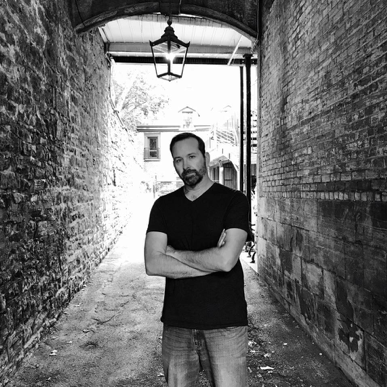Writers are very creative, very isolated people. Although through their work they create worlds filled with people and all kinds of adventures, it comes at a price. Spending that much time alone can cause them to fall into a depression and for some that leads to suicide.
Writer C. L. Kohuss, who has written for sportsillustrated.com, Bleacher Report, Fansided and Ozy, needs to be alone in order to have a successful writing environment. “I have to be alone when I’m writing, whatever I am working on at the moment. Most people I know who write or even edit can’t work unless they’re sat in say a crowded coffee shop or any place with a lot of noise. To me, that’s very distracting and I’ve never understood it at all. It’s a deal breaker actually. I can’t imagine getting anything done while a bunch of conversations are happening at once. I should ask them how they do it, because I have no idea,” he said.
Hemmingway is a good example of a famous writer who was overcome with depression and ultimately took his own life. He was known as someone who was very “manly” and “macho” so some consider his suicide to be the “coward’s” way out. Unfortunately, it really is no surprise that he killed himself once you look at his family history.
His own father took his own life as did Hemmingway’s siblings and later his own granddaughter. This indicates that mental illness is something that can be hereditary although isolating yourself with your work is not something that would help the situation. Hemmingway decided to take his own life on July 2, 1961 by shooting himself.
Back then it was considered shameful and even now some consider it to be a “fool’s” way out.
Not that long ago mental illness was not treated as well as it is today, and Hemmingway was not the only writer who struggled. Sylvia Plath wrote The Bell Jar, a semi-autobiography. It was the only book Plath ever had published, and one month before, she took her own life.
The Bell Jar follows a young woman who struggles with her mental health, her nervous breakdowns and her attempts at suicide. The novel is quite important as it does discuss the treatment that patients were exposed to back then, due to their mental illnesses. Especially as a woman, treatments were not always the best. For example a lot of patients were treated with shock therapy.
The importance of the novel is that it actually coincides with Plath’s life and how she struggled. As the book is semi-autobiographical some have tried to diagnose Plath with different disorders such as depression and bipolar II. Although it is true that Plath speaks through her character, it is done to add a narrative to her own experiences with doctors and her internal struggle.
As much as this novel speaks volumes about a woman’s mental health, it can also be seen as a feminist book, showing a character’s struggle with her mental health and the resistance towards conforming to be the perfect 1950’s woman. Plath’s words were where she found her comfort, using them to shield her from her inner pain. They helped her through her father’s death, and she wrote through the pain of her husband cheating on her. However, in the end she could only handle so much before receiving treatment. Plath ended her life on Feb. 11, 1963 by gassing herself in her own kitchen.
The isolation problem both Hemmingway and Plath dealt with has not improved over time. Sure, some writers work in an office full of people or at cafés where it is overflowing with students and office workers, laptops and coffee. The matter of isolation will always be something that comes along with the job.
“It’s very isolating and for me it has to be,” Kohuss said. “That’s the only way I know how to work. Of course, there are pros and cons to isolation. Particularly if you want to write well or maintain it as a priority with the mindset of making money and having a career, the time required means you likely won’t see your friends very often or get out of the house much.
“But you reach a point where it doesn’t seem to matter anyway. Going out takes a major backseat and when you are out, you’d rather go home and finish something you have been working on,” he added. “I’ve mentioned to a few people and I’m not sure if it’s universal to anyone who loves creating or being artistic, but there’s something in the brain that begins to pull at you if you don’t feed that creative desire. For me, going a few days without writing leads to an immense amount of guilt. I actually don’t feel well if I let it go too long.
“Isolation can be great though because you live and fail by your own hand. Every success is your own. I’ve been in bands before where the success is determined by the ability or commitment of three or four different people and that stuff is for the birds. You have to be able to rely on yourself before hoping others lead you to your goals,” Kohuss said.
Writing is actually in the Top 10 professions that have the most people who suffer from depression. In addition to the isolation, the irregular pay also adds stress. It is not a secure job and never has been. As well you cannot go to school to be an author and then find a job after you graduate. Usually you have to find time to write outside of your current job and hope for the best when sending off your work to publishers. As all the accomplished writers preach, you will get a lot of rejection before finally finding your feet.
There are two times while writing a novel that cause a lot of stress for the author according to novelist Simon Brett – one is while being a third of the way finished and the other is after it is sent to a publisher. For the first, authors can begin to hate the work they have done up to this point and dislike all of their ideas that lead to the finished product. This causes the writer to fall into a depression for as long as their writing process takes to get to the next leg. But that does not happen to each and every author; this profession can be compared to that of acting, another profession that one never fully feels secure in, and where there is a significant amount of mental health struggles. But with writing, you not only rely on yourself and your creative abilities, but your creative side can be your downfall.
Brett said once the novel is finished and it has been sent off for the final time there is a moment of complete happiness that can last for a couple of days. However, all of the doubt that authors have been pushing down during the writing process comes up all at once and brings them down quite a bit.
Living in the digital age does not bode well for a writer’s mental state either. Yes, there have always been reviews, but with the internet those reviews are instant. There are accounts on Instagram dubbed “bookstagram” accounts (see photos below) where people dedicate their page to taking photos of books and filling the description with reviews. Some of the accounts that have larger platforms actually receive advance copies of books in exchange for reviews.
As these sites become more popular, consumers look to these people for their opinions, especially the ones who have similar opinions to their own. This can be good for an author’s reputation, or very bad, which increases their stress level.


Another app that is popular for reviewing books is the app GoodReads This app is handy if you like to see the percentage of how much you have read in your current book. It is also handy because you are able to “follow” authors who you admire and are able to write reviews on books you have already read or read spoiler-free reviews on books that you are interested in. Authors have become hung up and obsessive in refreshing these pages to see the reviews left on their published works. It can be disheartening to read a negative review, even if the majority are positive.
Thankfully for most writers, writing is what brings them solace. Joe Mercer from Barrie Ont. has had a number of short works published. His latest is a Nunavut-based horror story for Lycan Valley Press. He is currently working on his first novel, entitled The Lost Ones.

“The story follows a group of strangers, each with their own damaged pasts, as they converge on a small west coast town. There they become pawns in the ages-old game of good versus evil,” Mercer said.
“At times writing can tear you down to the studs, leave you bare, sick and full of self-doubt and hatred, but I don’t find it isolating. The act itself is freeing.”
Although Mercer has struggled with his mental health, he has found ways to cope and move forward.
“Much has changed with my mental health over the years. I was suicidal less than 10 years ago, but now I am happier than I have ever been. That doesn’t mean the darkness doesn’t creep back in at times. To be honest, I’m glad it does. A part of me wonders if my writing would suffer if pain was to go away for good.
“Counselling is one of the reasons I am still alive. Period. There is no other way of looking at it. If you need to talk to someone, do it. There is no shame in asking for help.”
But what other ways does Mercer keep his mental health under control? “Meditation and self-reflection are key. For a long time I was making the mistake of burying the anger. Now I allow myself to experience the anger, but I don’t hold on to it. I understand that anger has a purpose, it is up to you to figure out what that purpose is. Writing allows me to slay some of the demons I keep locked in my closet. Many dark thoughts have made their way out of my mind and onto the page. It’s a form of therapy for sure.”
Many writers turn to writing groups and friends who are also writers to share thoughts of self-doubt and help pick each other up. Mercer is an advocate in finding friends in this profession.
“I can’t stress this fact enough. I have met many writers who have been instrumental in my growth as a writer and a person. Surround yourself with writers who want the best for you. They know what it is like to sit at a keyboard and struggle. They know what it is like to doubt yourself. I also suggest reaching out on social media to talk with writers you like. Send them a picture of you reading their book on the beach or in front of the fire. Retweet or share their accomplishments. Remember, writing isn’t a competition, it’s a community.”
Mercer said he, unfortunately, has not had the best time finding the perfect writing group.
“I have had little luck with writing groups. I have found these groups, especially those online, to be destructive and cancerous. If a writer in a group asks you to beta read and gets pissed off when you offer an honest critique, remove yourself from that situation. Fast.”
Although writing can be isolating, unforgiving, stressful and fulfilling there is something that all writers share, and that is they all have an ideal writing environment. “I have always wanted a lakeside writing shed where I’d have a rustic leather chair bellied up to an old desk. There’s a stone fireplace in the corner and a built-in bookshelf on every wall. And, of course, my pup curled up in his bed. I can easily imagine the smell of the old books and the fire. It makes me smile just thinking about it,” Mercer said.

Mercer has a fiancée, Vanessa Dewsbury, who is an accomplished writer as well. Her writing environment has a Zen feel to it. “I love writing in the calm of my home. I light incense, play “focus meditations” and put on comfy clothes.”
Dewsbury has been published in several blogs and magazines. But her biggest accomplishments would have to be her two published books, Heart is Where the Home is and Majestic Reflections.


Dewsbury is currently working on her third book, When Courage Comes Calling. But does she find writing to be isolating? “Not at all. Quite the opposite, in fact. It is my soul’s greatest escape,” she said.
Although she does struggle with mental health, she has found a way to combat it.
“I experience anxiety at times. It used to be daily, however, with consistent meditation practice, I rarely experience it now. Being mindful of my thoughts is another way I manage my mental health. I’m big on self-awareness, it’s key to mastering your mind and not letting your mind be your master.”
Writers in the past were worse off as people with mental health were ridiculed. Therefore, many writers did not seek counselling due to being mislabeled or embarrassed. Zelda Fitzgerald is among those who experts now think was misdiagnosed. Zelda, a writer, was married to F. Scott Fitzgerald, the famous author.
Zelda was born in Alabama and was dubbed by Fitzgerald as the “first flapper.” She was diagnosed with schizophrenia and spent a lot of her remaining years locked away in different facilities. She actually died in a fire at one of the hospitals when she was a patient there in March 1948 when she was 47 years old.

She was also much more than a writer. She was also a poet, a socialite, a painter and a dancer. These things did bring her comfort when words did not, or when her mind was elsewhere. The couple had a child together, Frances Scottie Fitzgerald, and after giving birth and being told it was a baby girl, Zelda is quoted as saying, “I hope it’s beautiful and a fool – a beautiful little fool.” Fitzgerald used this famous line in the novel The Great Gatsby, with the character Daisy Buchanan expressing this desire for her own daughter. A lot of what Zelda said to her husband found its way into his work. This was something that created a lot of resentment between the couple. When the Beautiful and Damned was in the works, Zelda was approached by the editor to write a review to which she included that a lot of the material had been lifted out of her personal diaries. She said this jokingly, however, it was true and this began to cause a rift in the marriage and took a toll on her mental state.
Fitzgerald was quite dismissive of Zelda’s claims, and also undermined her writing and harshly criticized her novel, Save Me the Waltz. He accused her of using their real-life experiences that he was saving for his novel, Tender is the Night, and that she stole a name of a character he had created.
Fitzgerald had his own array of mental health issues as well. He struggled with alcoholism and depression, and when Tender is the Night did not do as well as his previous novel, The Great Gatsby, he really felt it. He watched his friends find success over and over (Hemmingway) while Fitzgerald’s own success began to diminish. He died at the age of 44 on Dec. 21 of a heart attack. It is widely known that he died assuming he was a failure, as most of his novels only received moderate success. However, his novels are some of the most read and studied today, and he is now called one of the greatest American writers of the 20th century.
Writers past and present have struggled with mental health issues, and while some do take their own lives, others work on improving their health. Some do believe that their dark thoughts are part of what makes their writing so great and as long as they deal with those thoughts in a healthy way, they see no problem with them. For the rest of us, it is important to remember that an author’s work is like giving birth to a child, and none of us would criticize that newborn.

